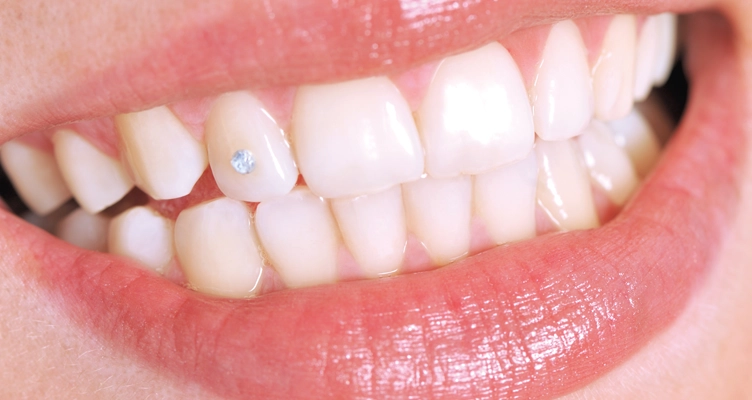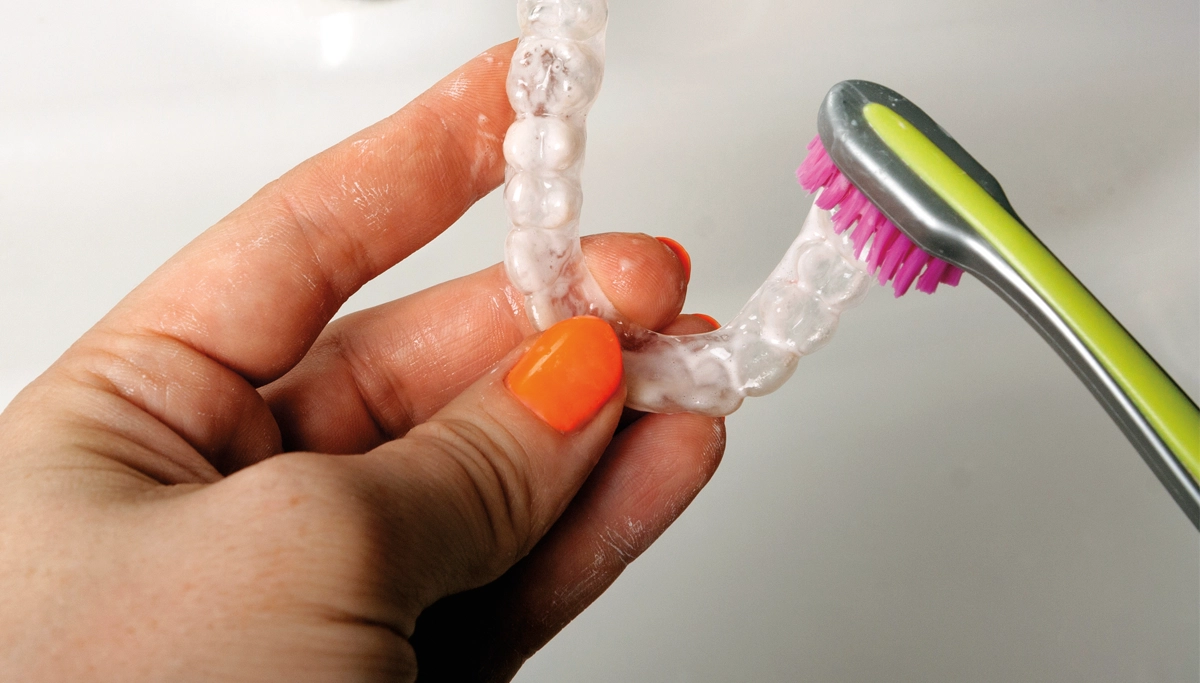Are tooth gems safe?
Tooth gems have surged in popularity, with an 85% increase in Pinterest® searches over the last year. These are tiny jewels, typically only a few millimeters in size, that are fixed to the surface of a tooth to offer a unique form of self-expression.
- Semi-permanent tooth gems
These are applied without drilling to minimize tooth damage. The process is similar to braces, and it typically lasts six months to a year. - Permanent tooth gems
These include drilling a hole in the desired location of the gem and fixing a gem to that area. Like its title, this option is permanent.
Tooth gems are not a new trend. The ancient Mayan civilization was the earliest known users of tooth gems, inlaying stones like jadeite, turquoise, quartz, and serpentine into teeth with ancient cements. Interestingly, this practice was falsely believed to prevent cavities and tooth decay.
Despite the appeal, there are a few things you should consider before adding gems to your teeth. The most important being that you should not use DIY tooth gem kits, which are popular on social media. DIY gem kits pose the most risk. All tooth gems — but especially DIY tooth gems — trap plaque and create places for stray food particles and bacteria to hide. Additionally, if a tooth gem falls off, it could potentially chip the enamel. And, if applied incorrectly, tooth gems can irritate your gums or become a choking hazard. Because of this, dentists should always apply tooth gems. Dentists use non-toxic materials and ensure the gem is polished to prevent bacteria accumulation.
Our verdict: Approach with caution. The risk of damaging your enamel, which cannot regenerate or be replaced, if or when the gem falls off is a significant downside. Not to mention the increased risk of cavities, too. Be sure to consult your dentist before trying any new viral dental trend.
Pinterest® is a registered trademark of Pinterest, Inc.







